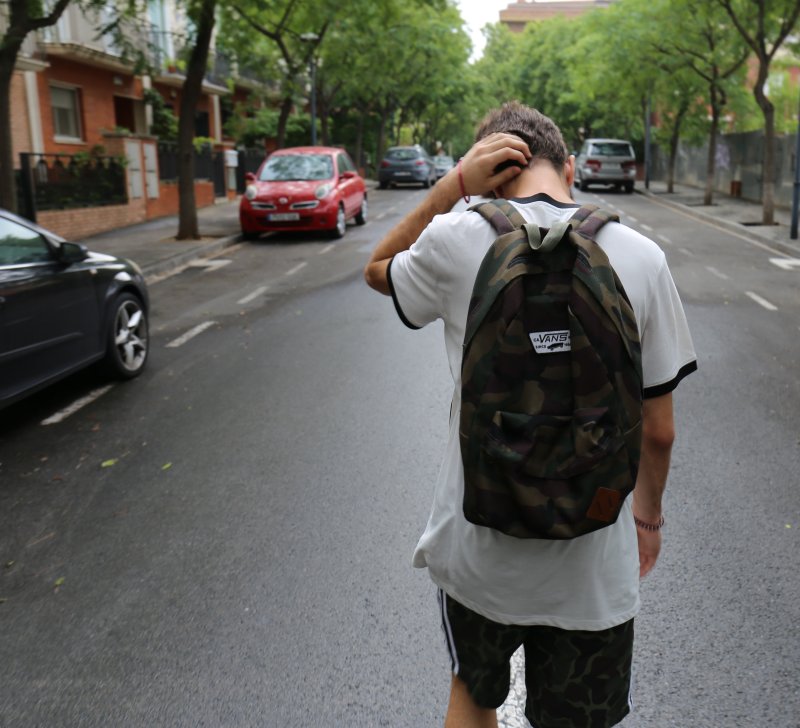Anarchy and Communism
Carlo Cafiero
1880
At a congress held in Paris by the Centre region, one speaker, who stood out because of his
fierceness against anarchists, said: “Communism and anarchy would scream to find themselves
together.”
Another speaker who also spoke against anarchists, though less harshly, cried out, in speaking
of economic equality:
“How can liberty be violated, if equality exists?”
Well! I think that both speakers are wrong.
There can absolutely be economic equality, without having liberty in the slightest. Certain
religious communities are living proof of this, because the most complete equality exists there as
well as despotism. Complete equality, because the leader dresses himself in the same cloth and
eats at the same table as the others; he distinguishes himself in no other way than by his right to
command. And the supporters of the “Popular state?” If they did not meet obstacles of any sort,
I am certain that they would eventually achieve perfect equality, but at the same time as perfect
despotism, because, let us not forget, the despotism of the present State would augment economic
despotism of all capital that passed through the hands of the State, and all would be multiplied
by all the centralization necessary to this new State. And that is why we, the anarchists, friends
of liberty, propose an all-out attack on them.
Thus, contrary to what was said, we have perfect reason to fear for liberty, even where equality
exists; though there can be no fear for equality anywhere where true liberty exists, that is to say,
anarchy.
Finally, anarchy and communism, far from screaming to find themselves together, would
scream at not finding themselves together, because these two terms, synonyms of liberty and
equality, are the two necessary and indivisible terms of the revolution.
Our ideal revolutionary is very simple, we will see: he is composed, like all of our predecessors,
of these two terms: liberty and equality. Only there is a slight difference.
Educated by the dodging that reactionaries of all sorts and of all times have done of liberty
and equality, we are wise to place next to these two terms an expression of their exact value.
We thus place, next to these two terms: liberty and equality, two equivalents of which the clear
significance cannot give rise to ambiguity, and we say: “We want liberty, that is to say, anarchy,
and equality, that is to say, communism.”

Anarchy today is an attack, a war against all authority, against all power, against all States. In
future societies, anarchy will be a defense, the prevention brought against the reestablishment
of all authority, of all power, of any State: full and entire liberty of the individual who, freely
and pushed only by his needs, by his tastes and his liking, combines with other individuals in
groups or partnership; free development of partnership which federates itself with others in the
commune or in the neighborhood; free development of communes which federate themselves in
the region – and so on: regions in the nation, nations in humanity.
Communism, the question that occupies us most specifically today, is the second point of our
ideal revolutionary.
Communism today is still an attack; it is not the destruction of authority, but the taking, in
the name of humanity, of all the wealth that exists on the globe. In the society of the future, communism will be the enjoyment of all existing wealth, by all men and according to the principle:
From each according to his abilities, to each according to his needs, that is to say: from each to
each according to his will.
It is necessary to remark – and this responds to our adversaries, authoritarian and statist communists – that the taking of possession and the enjoyment of all existing wealth must be, according to us, the doing of the people themselves. The people, humanity, not being individuals
capable of seizing wealth and taking it into their own two hands, we must conclude, it is true,
that it is necessary, for this reason, to institute a ruling class, of representatives and agents of
the common wealth. But we do not share this opinion. No intermediaries, no representatives
who always end up representing nobody but themselves! No moderators of equality, moreover,
no moderators of liberty! No new government, no new state, whether it calls itself popular or
democratic, revolutionary or provisional.
The common wealth being disseminated over the whole world, all rights to it belonging to
the entirety of humanity, those thus who find themselves on the level of this wealth and in a
position to use it will use it in common. People of such a land will use the planet, the machines,
the workshops, the houses, etc., of the land and will serve everyone in common of them. Parts of
humanity, they will exercise here, de facto and directly, their right to a part of the human wealth.
But if a resident of Peking came into this land, he would find himself with the same rights as the
others: he would enjoy with the others all the richness of the country, in the same way that he
did at Peking.
He was thus quite confused, that speaker who denounced anarchists as wanting to set up
property as belonging to corporations. Wouldn’t that be wonderful, if we had destroyed the State to replace it with a multitude of smaller States! To kill the monster with one head to entertain the monster with a thousand heads!
No, we have said it, and we will not stop saying it: no go-betweens, no brokers or helpful
servants who always end up becoming the true masters: we want all the wealth existent to be
taken directly by the people themselves and to be kept by their powerful hands, and that the
people themselves decide the best way to enjoy it, be it for production or consumption.
But people ask us: is communism applicable? Would we have enough products to let everyone
have the right to take as they wished, without demanding from individuals more labor than they
are willing to give?
We respond: yes. Certainly, we can apply this principle: from each according to their ability,
to each according to their need, because, in future societies, production will be so abundant that
there will be no need to limit consumption, or to demand from people more work than they are
willing or able to give.
Right now, we cannot even begin to imagine this immense growth in production, but we can
guess at it by examining the causes that will provoke it. These causes can be summed up in three
principles:
1. Harmony of cooperation in the different branches of human activity will replace today’s
fighting that translates into competition.
2. Large-scale introduction of all kinds of machines.
3. The considerable conservation of the forces of labor and of raw materials, facilitated by the
abolition of harmful or useless production.
Competition, fighting, is one of the fundamental principles of capitalist production, which has
as its motto: Mors tua vita mea, your death is my life. The ruin of one makes the fortune of another.
And this relentless fight happens from nation to nation, from region to region, from individual to
individual, between workers as well as between capitalists. It’s a war of the knife, a combat of all
forms: body to body, by groups, by squads, by army corps. A worker finds work where another
has lost it; one industry or many industries prosper where other industries decline.
needs of vanity and corruption!
And when all this force, all these materials, all these tools are used for industry, for the production of objects that themselves will serve to produce, what a prodigious growth in production
we will see appearing!
Yes, communism is applicable! We can of course let everyone take according to their will, since
there will be enough for everyone. We will no longer need to demand more work than anyone
wants to give, because there will always be enough products for tomorrow.
And it’s thanks to this abundance that work will lose the dreadful character of enslavement,
in leaving to it only the charm of a moral and physical need, like that of studying, of living with
nature.
This is not just to say that communism is possible; we can affirm that it is necessary. Not only
may we be communist; we must be communist, or else risk missing the point of the revolution.
In effect, after the collectivization of tools and raw materials, if we conserve the individual
appropriation of products of work, we will find ourselves forced to save money, subsequently
an accumulation of greater or lesser wealth, according more or less to merit, or rather, to the
skill, of individuals. Equality would thus have disappeared, because those who had managed
to accumulate more wealth would already have been thus elevated above the level of the others.
There would no longer remain more than one step before counter-revolutionaries could establish
the right of heritage. And, in effect, I heard a renowned socialist, a so-called revolutionary, who
supported the individual attribution of products, finish by saying that he saw no drawbacks of
a society that accepted the passing on of these products by inheritance: this, according to him,
would be unlikely to have any repercussions. For those of us who know closely the results at
which society has arrived with this accumulation of wealth and their passing on by inheritance,
there can be no doubt on this subject.
But the individual attribution of products would re-establish not only inequality among men,
but also inequality among different forms of work. We would almost immediately see the reappearance of “clean” and “dirty” work, of “noble” and “dreadful” work: the former would be done
by the rich, the latter would be the assignment of the poor. So it would no longer be calling and
taste that led a man to dedicate himself to one type of activity as opposed to another: it would be
self-interest, the hope of gaining more in a certain profession. In this way, laziness and diligence,
merit and lack of merit, good and bad, vice and virtue, and, by consequence, “reward” on one
hand and “punishment” on the other, the law, the judge, the henchman, the prison, would all
reappear
.There are socialists who cling to supporting the idea of individual attribution of products of
work, arguing the sense of justice.
Strange illusion! With collective work, that imposes upon us the necessity of large-scale production and large-scale implementation of machines, with this ever-growing tendency of modern work to serve itself of the work of preceding generations – how will we be able to determine
which parts of the product belong to whom? It’s absolutely impossible, and our adversaries themselves know this so well that they end up saying “Well, we will use as a basis for distribution the
hours spent working,” but, at the same time, they themselves admit that this would be unjust,
because three hours of work from Pierre might produce as much as five hours of work from
Paul.
In the old days, we called ourselves “collectivists” because this was the word that distinguished
us from individualists and from authoritarian communists; but, in the end, we were all quite
simply anti-authoritarian communists, and, in calling ourselves “collectivists,” we thought we
were expressing by this name our idea that everything must be pooled, without distinguishing
between the instruments and materials of work and the products of collective work.
But, one day, we saw a new shade of socialists sprout up who, resuscitating the errors of the
past, admiring themselves philosophizing, distinguishing themselves on this question, finished
by making themselves the apostles of the following thesis:
“There exist,” they say, “use value and production value. Use value is that which we use to
satisfy our personal needs: the house we live in, the food we consume, clothing, books, etc., while
production value is that which we use to produce: it is the workshop, the sheds, the cowshed, the
warehouse, the machines and tools of all sorts of work, the sun, raw materials, etc. The former,
which serve to satisfy the needs of the individual,” they say, “must be attributed to the individual,
while the latter, which help everyone to produce, should be commonly owned.”
This is the newly discovered – or rather, renewed as needed – economic theory.
But I ask you, you who give the favorable title of “production value” to the carbon that feeds
machines, to the oil that serves to oil it, to the oil that illuminates its work – why do you refuse
this title to bread, to the meat I eat, to the oil with which I season my salad, to the gas that
illuminates my work, to all that aids the living and working of that most perfect of all machines,
the father of all machines: the man?
You class as production value the meadow and the stable that serve to shelter cows and horses,
and you exclude the houses and the gardens that serve the most noble of all the animals: the
man?
Where is your logic?
Besides, you yourselves who imagine yourselves as the apostles of this theory, you know perfectly well that this demarcation does not exist in reality, and that if it is difficult to draw it today,
it will disappear completely the day that we are all producers as well as being consumers.
Thus, it is not this theory, we see, which could give a new force to the supporters of individual
attributions of the products of labor. This theory has only obtained one result: that of unmasking
the game of these few socialists who would like to limit the range of revolutionary thought; it
has opened our eyes and shown us the necessity of saying straight out that we are communists.
But finally, let’s address the one and only serious objection that our adversaries have brought
against communism.
We all agree that we are necessarily moving towards communism, but we observe that at the
beginning, products will not be abundant enough; it will be necessary to establish rations and to
divide up resources, and that the best part of the products of labor will be based on the quantity
of work that each person has done.
To this we respond that, in a future society, even when we are obligated to ration resources, we
must remain communists: this is to say that the rationing must be done according not to merits,
but to needs.
Take the family, that small model of communism (of an authoritarian communism more than
anarchist, it is true, which, besides, in our example, changes nothing).
In the family, let’s suppose that the father brings home a hundred cents every day, the eldest
son three francs, a younger boy forty cents, and the youngest only five cents a day. Each brings
this money to the mother who keeps the cash and feeds them. Everyone earns different amounts,
but at dinner, everyone serves themselves as they please according to their appetites; there is no
rationing. But the bad days come, and being entirely broke forces the mother to no longer rely
on the appetite and taste of each person for distribution at dinner. It is necessary to ration and,
be it by the initiative of the mother or by the tacit agreement of the whole table, the portions are
reduced. But see, this sharing does not happen according to earnings, because it’s the youngest
children who receive the most generous helpings, and the best piece of the meat is reserved for
the old woman who earns nothing at all. Even during a food shortage, the family operates on
the principle of rationing according to needs. Could it be otherwise in the human family of the
future?
It is obvious that there would be more to say on this subject, if I were not speaking in front of
anarchists.
We cannot be anarchists without being communists. In effect, the slightest idea of limitation
already contains the seeds of authoritarianism. It could not be realized without immediately creating the law, the judge, the policeman.
We must be communists because it is in communism that we will realize true equality. We must
be communists because the people, who do not understand the collectivist sophistry, understand
communism perfectly, as our friends Reclus and Kropotkin have already remarked. We must be
communists, because we are anarchists, because anarchy and communism are the two terms
necessary for the revolution.









